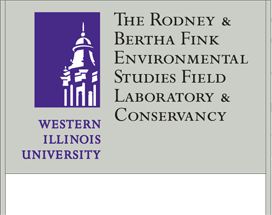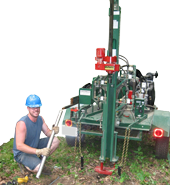About the Institute
Mission, Vision, & Capabilities
Mission
The Institute for Environmental Studies (IES) was organized in August 2005 as an interdisciplinary unit in the College of Arts & Sciences. The Institute has a tripartite mission, in concert with the College, its Departmental faculties, students and other University organizations, to:
- Undertake collaborative environmental research and scholarship through external grants and contracts.
- Support interdisciplinary undergraduate and graduate academic programs in Environmental Studies.
- Provide campus and community service and outreach to address environmental sustainability within local and regional contexts.
Vision
To become an interdisciplinary center of knowledge and expertise focusing on the scientific, human and social aspects of rural and regional environmental issues.
Capabilities
The strength of the Institute is derived directly from the expertise and engagement of WIU faculty. As a unit of the WIU College of Arts & Sciences, IES is able to draw on faculty from the physical & natural sciences, social sciences, and humanities to provide unique, integrated, and holistic approaches to environmental challenges. Representative areas of expertise include:
- Aquatic & terrestrial biological inventories & restoration planning.
- Long-term ecological monitoring.
- Geomorphological/geophysical analysis.
- Geospatial data collection & analysis.
- Historical & cultural resource assessments.
- Environmental education/humanities.
Facilities & Collaborations
WIU is a two campus system with major facilities located on or near the Mississippi, Illinois, & Rock Rivers. The main campus in Macomb and the Quad Cities campus in Moline are supported by a number of unique field sites situated throughout the region - including the Department of Biological Sciences’ Alice L. Kibbe Life Science Station located on the shores of the Mississippi River in Warsaw, IL. The station is equipped with a complement of vessels and field gear needed to conduct river-based environmental studies and can accommodate as many as 44 residents.
At the Macomb campus, two natural areas are available for environmental teaching & research: the Rodney & Bertha Fink Environmental Studies Field Laboratory & Conservancy and the Ira & Reatha T. Post Wildlife Sanctuary.
The Rodney & Bertha Fink Environmental Studies Field Laboratory & Conservancy
Located
within
3 miles of the Macomb campus, the Fink Environmental Studies Field Laboratory provides
the WIU community with opportunities to study both terrestrial and aquatic ecology in a setting that is protected by conservancy agreements with federal resource management agencies. Additionally, direct access to the East Fork of the Lamoine River
 is available along the ~1/2 mi. of frontage on the eastern boundary of the property. For more information on the Rodney & Bertha Fink Environmental Studies Field Laboratory & Conservancy, click here.
is available along the ~1/2 mi. of frontage on the eastern boundary of the property. For more information on the Rodney & Bertha Fink Environmental Studies Field Laboratory & Conservancy, click here.
Ira & Reatha T. Post Wildlife Sanctuary
The Ira & Reatha T. Post Wildlife Sanctuary, situated ~20 minutes west of the Macomb Campus, is a site of both ecological
and cultural importance in western Illinois. Founded in the 1880s, the site was
 operated as a health retreat through the 1920s. In the intervening years, the property was occupied only sparingly. Consequently, there are significant opportunities to study processes relevant to the recovery of disturbed natural systems in western Illinois and beyond. Likewise, the collection and preservation of cultural and historical remnants from the unique communities that occupied the site can enhance our understanding of western Illinois’ rural heritage.
operated as a health retreat through the 1920s. In the intervening years, the property was occupied only sparingly. Consequently, there are significant opportunities to study processes relevant to the recovery of disturbed natural systems in western Illinois and beyond. Likewise, the collection and preservation of cultural and historical remnants from the unique communities that occupied the site can enhance our understanding of western Illinois’ rural heritage.
To learn more about the history of the Post Sanctuary, click here to visit the Friends of Vishnu Springs.

Connect with WIU: